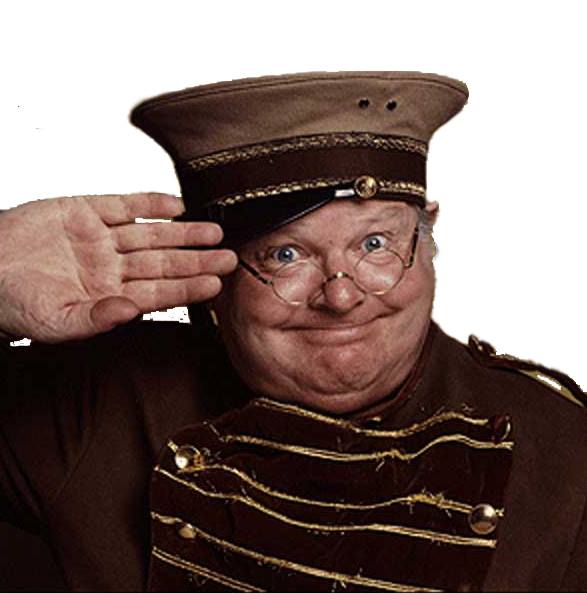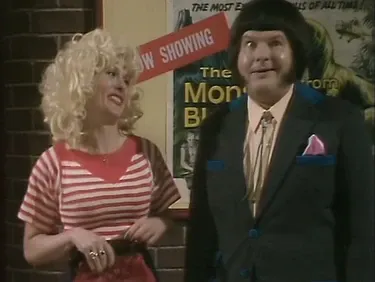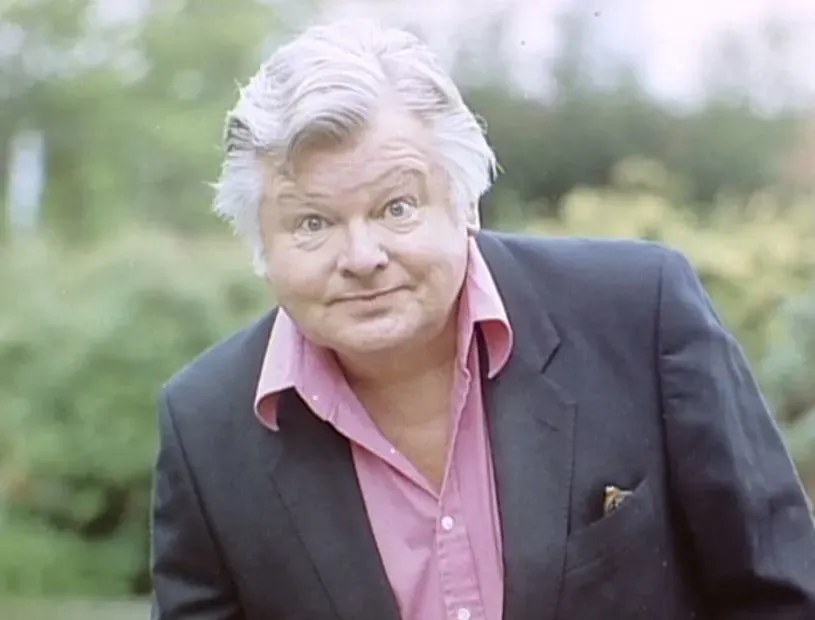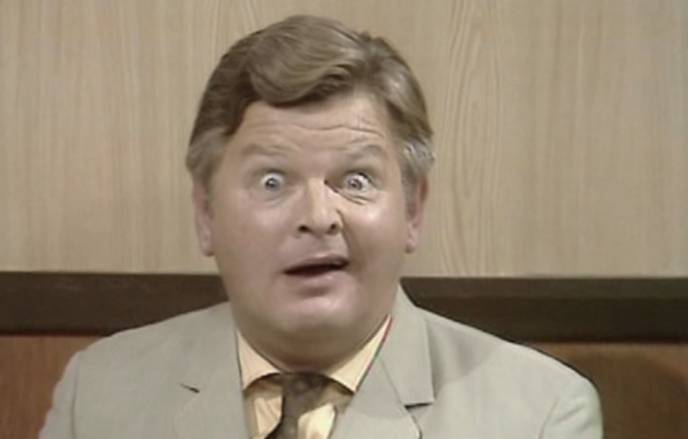Benny Hill Died Alone: The Loneliness Behind the Laughter
A reflection on the lonely death of comedian Benny Hill—and the unexpected connection I shared with my father because of him.

I grew up in the 1980s, and my first introduction to nudity may very well have been while I watched Benny Hill. My dad was an immigrant who didn’t speak much English, so he didn’t understand much of American television. But he understood Benny Hill.
What was there not to understand? His slapstick comedy involved slapping his diminutive bald friend across the head, looking up skirts of scantily clad women, tripping over things, and making funny faces. It may have been one of the few times I saw my father laughing out loud.
As a pre-teen, I always hoped to get some glimpse of nudity. This was before the days of online porn and cable TV. Later I would graduate to trying to see porn through the scrambled video on our black and white TV while playing with the antennas trying to get HBO just a little better.
As I grew older, I began appreciating Hill for his dialogues and song lyrics. The man was a comedic genius. He wasn’t Richard Pryor or George Carlin. He was different. Imagine a perverted British Bob Hope. That was Benny Hill.
Michael Jackson called Benny Hill the funniest comedian ever. Take that with a grain of salt, I guess. Hill was humbled to tears when in the 1970s he visited one of his comedic influences and idols, Charlie Chaplin, at Chaplin’s home only to discover the original British icon had a collection of all of Benny Hill’s videos.
But for all of Hill’s frivolity, Hill was totally different off screen. Everyone who ever worked with him said he was a complete gentleman, in contrast to the perverted characters he played on his shows. The changing of times and the onset of political correctness would put an end to Hill’s career in 1989, after over 33 years on TV. Hill’s treatment and portrayal of women wasn't considered funny anymore.

Hill took his firing hard. The show was all he had. He had never married - having been rejected at least twice proposing to different women. He also had no children. One can only imagine what it must have been like for Hill to suddenly have nobody at home and no job to distract him. That life was all he had known for over three decades - over half his life.

Hill turned to food. He once was in tip-top shape and had served in the British Army, but now gorged himself into an unhealthy, obese, nearly 70-year-old Ted Kennedy look alike. Depression can do that to you. So can living by yourself with little distractions. So can the thought that society had turned on him and now considered him a sexist pig. He felt ostracized.
Hill’s health began to decline not long after he was let go in 1989. In February of 1992, he suffered a heart attack. Doctors told him he needed a heart bypass. Hill refused.
Not long after, his kidneys began to fail. Again, he said no to treatment. No dialysis. No surgeries.
It was as if he had decided to let go of life—just as the world, and his fans, had let go of him.
Less than two months later, Hill died of another heart attack. He was 68.
He died alone, sitting on his couch, the television still flickering in front of him. Around him: dirty dishes, unopened letters, videotapes scattered across the floor.
No one found him for two days.
For 48 hours, Benny Hill—once the most-watched man in Britain—sat dead in his home, and no one noticed.
It is telling that Hill died only three years after being fired from his life work. Hill was understanding when he got fired by Thames Television but did say that “a little pat on the back would have been nice” after 22 years with the company.
How often do you see people die only a few years, months, or even weeks after they retire? My mother's health began declining almost immediately after she retired at the age of 71. Does it have to do with losing their purpose to life? Their identity?
I recently got let go from a job that I had worked for over 30 years as well, and, like Hill, never even got a pat on the back on my way out. Instead, I had to get a letter via registered mail saying they had decided to part ways with me after my family leave for grief had expired. No face-to-face meeting. No phone call. Not even a text message. That was a tough pill to swallow.
Some people would have turned to drugs and alcohol. Hill turned to food. I began drinking hard liquor for the first time in my life. Anything to numb the mental pain of being rejected, of feeling worthless.
Much like me, Hill was a “momma’s boy.” His mother was his everything. When she died, he didn’t shed a tear. His father was a hard-ass, yet when he died, Hill cried. Hill explained that he didn’t cry at his mother’s funeral because he knew he loved her as much as he could, but he did cry at his father’s funeral because he felt he could have loved him more.
I had—and still have—complicated feelings about my parents.
I always assumed I’d cry at my mother’s funeral, but not my father’s. My dad is 88 and still alive (at last check). My mother was my life. Maybe that’s why, like Benny Hill, I never married or had children.
She passed away two years ago.
And when the day came, I didn’t cry. I remember trying to cry—but I couldn’t. I just sat there, dry-eyed, confused.
At the wake, I gave little nods, little waves to everyone who walked past me, offering their condolences. No hugs. No hands on shoulders. I couldn't even fully see people's faces, they were covered with masks.
COVID protocols didn’t allow us to touch. It made me feel more alone.
Somehow, that made my closure feel even less real. Like this wasn't really happening. Like the whole thing was just one bad dream.
Now, as I write this, the tears come. Great.
Where were these tears then?
The truth is, I know I was a good son. I told her I loved her every day. She knew. I gave her my all.
My dad is a different story. He was—and still is—a hard-ass. The only time I remember him laughing, really laughing, was watching Benny Hill. A man who, himself, never got love from his father.
When I was a kid, if I came home with four A’s and one A-, I got the belt for the A-. I don’t remember him ever saying he was proud of me.
Do I have any animosity towards him because of that? Not really. He was a product of his generation and upbringing. I don't blame him for that.
Would it have been nice to get a pat on the back or a hug every once in a while? Sure.
So will I cry at his funeral?
I don’t know. We’ll see—if I don’t die first. Knowing him, he’ll outlive us all. No one would’ve bet that twenty years ago, but here we are.
The story of Benny Hill is sad, and it should be. Anytime someone dies alone and isn’t found for days—it’s tragic. But when that person made millions laugh, it’s almost unimaginable.
Benny Hill’s comedy hasn’t aged well. Some of it is cringeworthy, some of it flat-out inappropriate. But it was also a product of its time—just like my father was.
What sticks with me now isn’t the crude jokes or the chaos. It’s the laughter I shared with my dad. We didn’t talk much. We didn’t have much in common. But when Benny Hill came on, we laughed together.
And sometimes, with a father who never said much or showed much emotion, that was enough.
Benny Hill died alone. For a man who brought so much joy, that feels wrong.
But I’ll always be grateful to him—because for a moment, he brought a father and son together. Not with words. Not with hugs.
But with laughter.

Enjoyed this piece? Share it with someone who remembers Benny Hill — or just needs a laugh today:
🐦 Share on Twitter📘 Share on Facebook
💼 Share on LinkedIn
